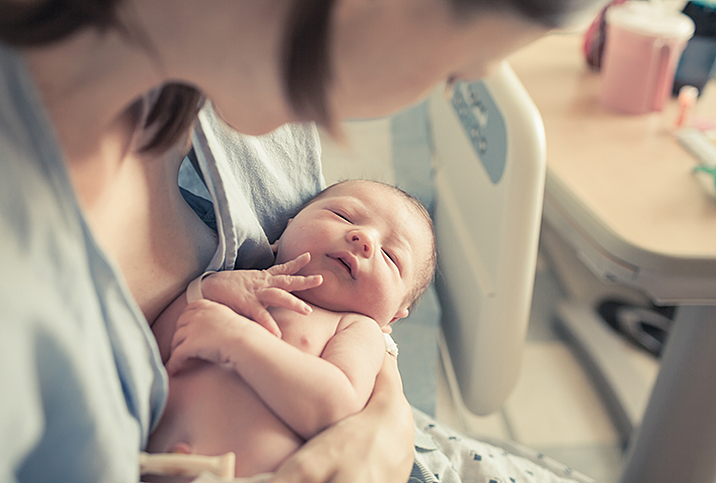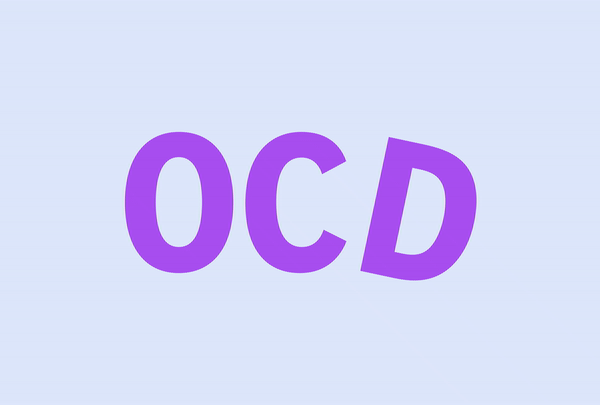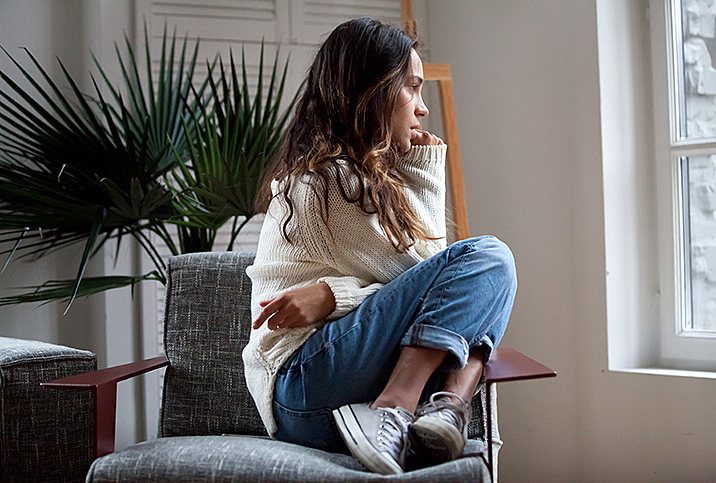Postpartum OCD May Not Be What You Think—What It Is and How to Cope

Every time her husband left the house, Shoshana Bennett, Ph.D., a California-based mother, perinatal psychologist and author, felt frozen by fear. She didn't know how she and her newborn baby would survive until he got home.
"Every time I looked at my beautiful baby, I would envision harming her in some way, and it would horrify me that as her mother, I would be thinking and also picturing these awful things," she said.
New images of her daughter getting strangled by the vacuum cord, or getting her hand caught in the garbage disposal, or being cooked in the microwave, or being thrown into the fireplace all flooded Bennett's mind every 30 seconds. But these events never happened, nor did she want them to happen.
"I was the safest mother on the block but didn't realize it," she said.
Bennett had panic attacks, felt nauseous and couldn't sleep. She figured she wasn't meant to be a mom. It got to a point where she felt suicidal.
While she didn't know it at the time due to a lack of medical providers and conversations about the condition, Bennett was struggling with postpartum obsessive-compulsive disorder (OCD).
While postpartum OCD affects 3 percent to 5 percent of new mothers, they aren't the only ones who may experience it.
"It is primarily seen in moms, but dads can also suffer from it," said Carly Snyder, M.D., a perinatal and reproductive psychiatrist in New York City. "Parents sometimes say they feel 'crazy,' but they aren't—they're experiencing severe anxiety."
Recognizing postpartum OCD
When you picture OCD, you may think of handwashing, organizing a room or repetitive movements. You wouldn't be wrong; for some people, that's what OCD looks like.
However, postpartum OCD looks slightly different. As you can guess from the name, it's a type of anxiety disorder that happens after someone gives birth. Like "regular" OCD, it entails distressing thoughts that lead people to engage in compulsive behaviors to alleviate anxiety.
But those obsessions, or thoughts, are instead focused on the baby's safety.
"Postpartum [parents] often experience obsessions surrounding harm coming to the baby, such as fear that they will drop the baby or the baby will stop breathing...In some cases, obsessions can even involve the [parent] harming the baby," said Emily Guarnotta, Psy.D., a licensed clinical psychologist and certified perinatal mental health provider in Merrick, New York. "This can lead to compulsions to check the baby's breathing or other rituals to help reduce anxiety...Compulsions can range from person to person, but may include checking, cleaning, counting or ordering."
Parents sometimes say they feel 'crazy,' but they aren't—they're experiencing severe anxiety.
Some parents may avoid changing and feeding the baby out of fear they'll abuse or poison them, shared Tara Lindahl, Psy.D., a clinical psychologist who specializes in perinatal and postpartum care in Sacramento, California.
It's a debilitating illness. The way parents with postpartum OCD respond to the illness can differ.
"Some [parents] avoid being alone with the baby, and others are hypervigilant and unwilling to let others care for the baby," Snyder said.
Shame can then sneak in.
"Feeling embarrassed and ashamed and not wanting to tell others about these thoughts and behaviors [are common signs]," Lindahl added.
The causes of postpartum OCD
"Just like many other mental illnesses, there is no one cause," Lindahl continued.
Some contributing factors she listed include a huge swing in hormones, sleep deprivation, self-doubt about your ability to parent, and OCD symptoms before giving birth.
Guarnotta added genetics and the stress related to newborn care can be factors. Snyder said people who have a family history of OCD or anxiety are at an increased risk, too.
"We want so desperately to protect our babies, and sometimes that desire coupled with anxiety leads to thinking about the theoretical worst-case scenario, and these thoughts can become a seemingly endless loop in a parent's head," Snyder explained.
Think you might be struggling? Here are coping tips
First of all, it's OK if "coping" feels like too much sometimes.
"Since 'cope' means to deal effectively with a difficult situation, I have to say I did not cope. I merely survived," Bennett said.
As Bennett and the experts will tell you, professional help is crucial. Reach out to your therapist or psychiatrist, or get a referral from your primary care doctor or OB-GYN. Psychology Today has a database of providers, too.
"Research suggests a combination of exposure and response prevention therapy, which is a specialized type of cognitive behavioral therapy, and SSRI medications are very helpful," Lindahl said, referring to selective serotonin reuptake inhibitors, typically used as antidepressants.
"There are also several online forums and support groups available to share [your] experience and gain support from others with similar experiences," she continued.
Try not to forget about self-care and engage in it as best as you can.
'Most importantly, you deserve the best help, and your whole family will benefit as you receive proper support and are able to enjoy your life.'
"In addition to treatment, postpartum [parents] can benefit from practicing good self-care, like getting enough sleep, eating well and exercising, if approved by their healthcare provider," Guarnotta said. "Mindfulness practices are also helpful for OCD."
An example of a mindfulness practice that can help is accepting you're having these thoughts without trying to fight them with a compulsion, and remembering they're just thoughts, not warning signs.
Taking care of yourself can help both you and your family.
"Most importantly, you deserve the best help, and your whole family will benefit as you receive proper support and are able to enjoy your life," said Bennett, who as a survivor of postpartum OCD is now laser-focused on helping other parents and families not suffer as much as she did.
Remember, the reality isn't as scary as it seems—which, of course, is easier said than believed.
"People with OCD are sane and almost never harm their baby," Snyder said. "They are petrified by the thoughts and try everything they can do to protect their babies."

















